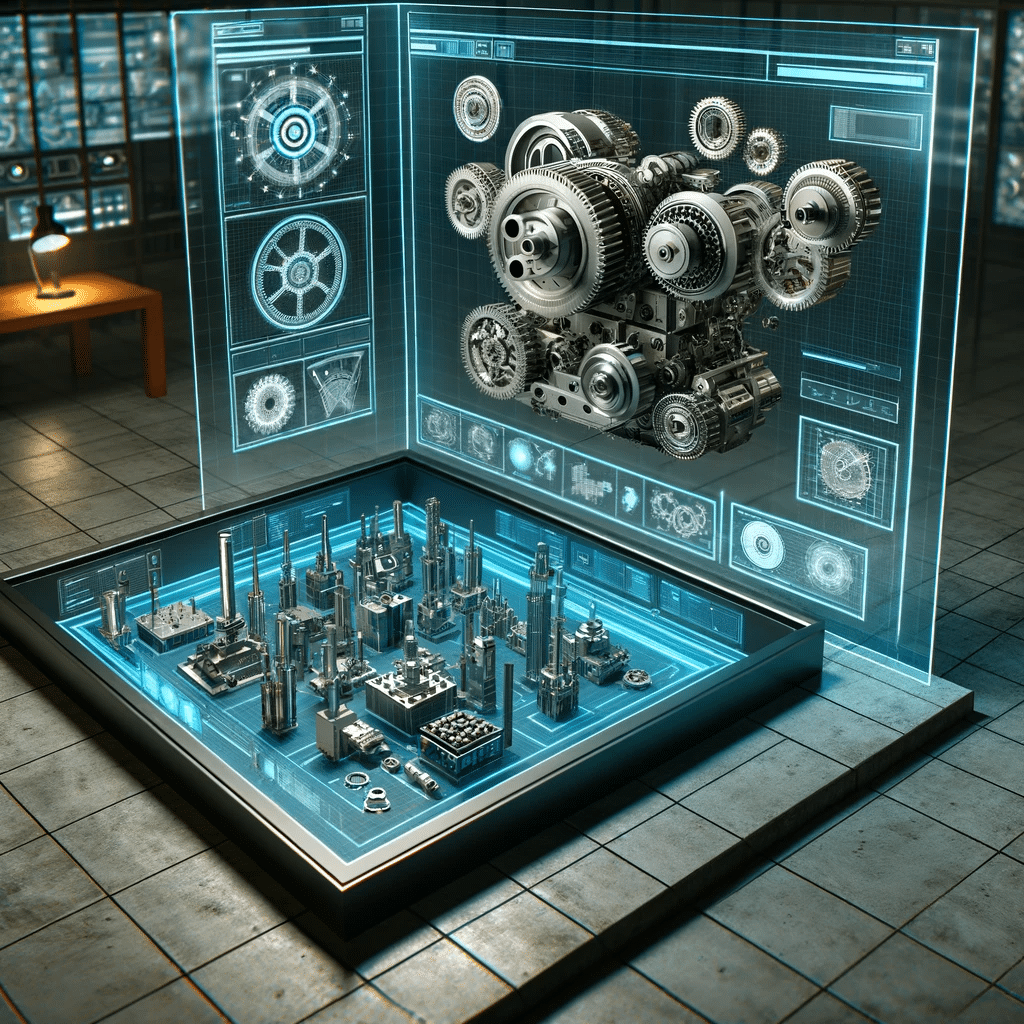Virtual machine demonstrations in industry: a new standard for technical presentations
The industrial landscape is undergoing an impressive transformation thanks to virtual machine demonstrations. This technology, which relies on advanced digital representations, is revolutionizing the way industrial machinery is presented and understood. In this article, we look at the growing role of virtual machine demonstrations in the industry and their impact on sales and technical understanding.
What are virtual machine demonstrations?
Virtual machine demonstrations in the industry make use of modern technologies such as 3D modeling, virtual reality (VR) and augmented reality (AR) to present machines and systems in an innovative way. Unlike traditional methods that require the physical transportation of equipment, these virtual presentations offer a dynamic and interactive experience that is both spatially and temporally unbound.
The benefits of virtual demos in the industry
At a time when efficiency and accessibility are crucial, virtual machine demonstrations offer significant advantages in the industry. They not only reduce the costs and logistical challenges associated with physical demos, but also open up new opportunities for global access and customer engagement. By using virtual demos, companies can present their products to a wider audience without geographical restrictions.

Application examples of virtual machine demonstrations
A key area where virtual machine demonstrations show their strength in the industry is customer interaction. For example, sales teams can use VR technology to offer potential customers a detailed and interactive view of the machines without them having to be physically on site. This not only enables a deeper product experience, but also a more efficient use of the resources of both parties.
Furthermore, virtual demos are a powerful tool in the training and further education of employees. By simulating real machines in a virtual environment, complex functions and maintenance procedures can be demonstrated safely and cost-effectively. This improves employee understanding and skills without requiring expensive or dangerous physical demonstrations.
Challenges and overcoming them
Although virtual machine demonstrations offer many advantages in industry, companies often face challenges when it comes to implementation. One of these is the need to invest in the appropriate technology and expertise. In addition, the integration of these new methods into existing sales and training processes may require organizational adjustments.
To overcome these challenges, companies should work with experienced technology partners who not only provide the necessary hardware and software, but can also offer the necessary training and support. A gradual introduction with pilot projects and feedback loops can also help to ease the transition and ensure effective integration into existing processes.
Future prospects
The future of virtual machine demonstrations in industry looks promising. With advancing technologies such as improved VR and AR systems and increasing acceptance of digital solutions in the industry, these demonstrations are expected to become even more interactive, realistic and accessible. This will not only change the way industrial companies present and market their products, but also how they organize internal training and customer engagement.
Integration into marketing strategies
The integration of virtual machine demonstrations in the industry into marketing strategies offers companies a decisive competitive advantage. By integrating these technologies into their online presence, for example through interactive 3D models on their websites or virtual tours on social media, they can create an impressive user experience. This not only increases interest and the time spent on the website, but also increases the likelihood of conversions.
Another aspect is the use of data and feedback obtained through virtual demos. Companies can gain valuable insights into user preferences and behavior, which can help optimize product offerings and marketing strategies.
Sustainability aspect
An often overlooked benefit of virtual machine demonstrations in industry is their contribution to sustainability. By reducing the need for physical prototypes and travel, both material and energy consumption are reduced. This not only supports the companies’ ecological goals, but also appeals to environmentally conscious customers who increasingly value sustainable business practices.

Case studies and success stories
Specific case studies and success stories from industry can be used to illustrate the effectiveness of virtual machine demonstrations. Companies that have already switched to virtual presentations often report increased customer interaction, improved sales figures and more efficient training processes. These stories not only offer practical insights, but also serve as inspiration for other companies looking to introduce similar technologies.
Virtual machine demonstrations in the industry are more than just a passing fad; they are a forward-thinking solution that is permanently changing the way industrial companies communicate, train and sell. By pushing the boundaries of what is possible, they provide a platform for innovation, efficiency and engagement in an increasingly digitalized world.
For a prime example and information on the use of 3D technologies in the industry, visit marconomy.de.
Find out more about klar.land’s machine demo at Interzum here.

Leave a Reply